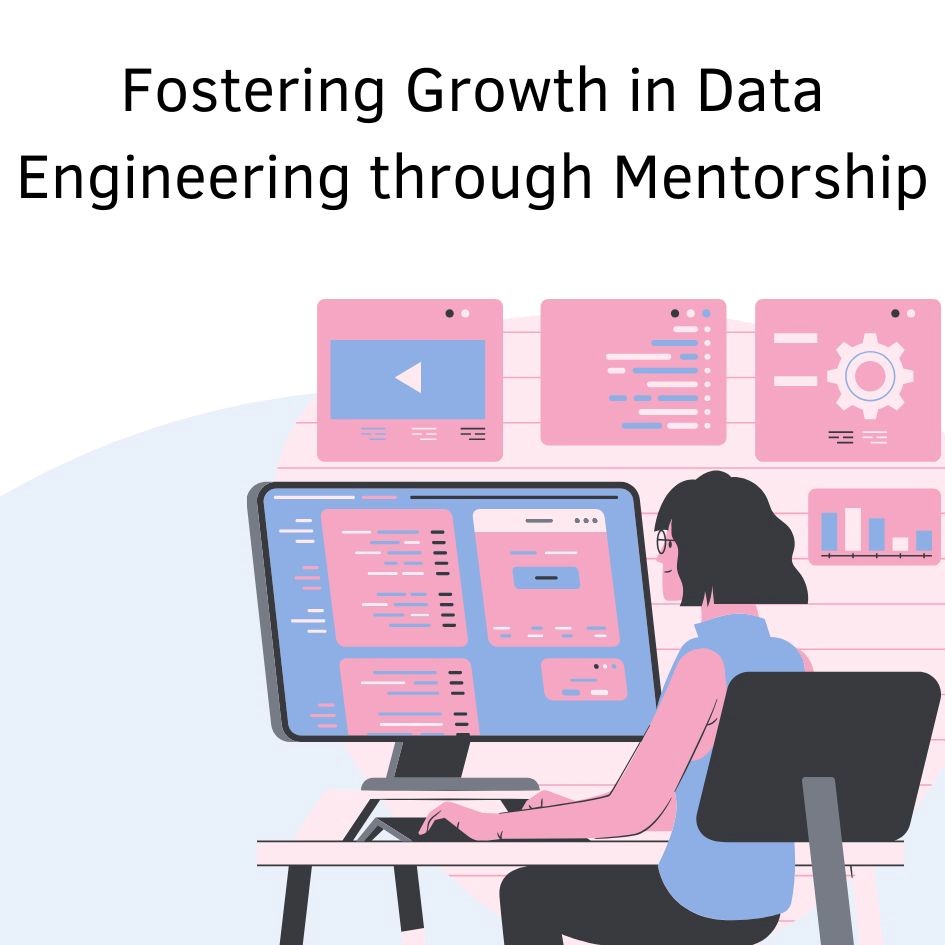Fostering Growth in Data Engineering through Mentorship
In the dynamic field of data engineering, mentorship plays a crucial role. Abhishek Vajpayee, along with co-authors Rathish Mohan, Srikanth Gangarapu, and Vishnu Vardhan Reddy Chilukoori, delves into the importance of structured mentorship programs. Their analysis highlights how these programs cultivate technical skills and essential soft abilities, fostering talent growth and driving innovation in the ever-evolving data landscape.
Bridging the Skills Gap with Real-World Experience
Traditional education often falls short in providing the practical, hands-on experience necessary for mastering complex data engineering tasks. Mentorship fills this critical gap by offering tailored guidance. Mentees gain exposure to advanced programming techniques in Python, Scala, and SQL, as well as mastery of big data processing frameworks like Apache Spark and Hadoop. This kind of direct, applied learning surpasses theoretical knowledge and accelerates skill acquisition, equipping professionals with capabilities that align with industry demands.
Enhancing Communication and Collaboration Skills
Technical skills alone are insufficient in today’s collaborative work environments. Effective data engineering requires clear communication and seamless teamwork. Through mentorship, professionals can develop essential soft skills, such as articulating complex technical concepts to varied audiences, fostering collaboration within cross-functional teams, and approaching problem-solving with innovative and analytical thinking. These mentorship-driven competencies are crucial for successful project execution and stakeholder engagement.
Gaining Industry Insights and Best Practices
Mentorship extends beyond the technical to provide mentees with valuable industry insights. Guidance from experienced mentors helps them understand data governance, compliance, and industry standards, which are integral to ensuring the reliability and security of data systems. Mentors can illuminate why certain practices are adopted and how emerging technologies can be integrated effectively. This deep contextual understanding empowers data engineers to make informed decisions and contribute meaningfully to their organizations.
Mutual Benefits: Growth for Both Mentors and Mentees
While the primary focus often rests on the benefits for mentees, mentors also experience substantial growth. By guiding others, mentors refine their leadership and coaching abilities. Explaining complex concepts reinforces their own knowledge and keeps them abreast of current industry trends. The mentorship process fosters a two-way exchange of ideas that can spark fresh perspectives and innovation. Moreover, mentors gain personal satisfaction from contributing to the professional growth of their mentees, enhancing their reputation and opening new opportunities for career advancement.
Organizational Advantages of Effective Mentorship
The impact of mentorship extends beyond individuals to benefit the entire organization. Structured mentorship programs facilitate the transfer of institutional knowledge, thus reducing the risk of expertise loss. As mentees evolve into proficient contributors, team productivity improves, fostering a collaborative environment that supports continuous learning and innovation. Additionally, organizations that prioritize mentorship tend to attract and retain top talent, making it a strategic asset in today’s competitive job market. The culture of support and shared learning that mentorship promotes also aids in succession planning, ensuring that future leaders are well-prepared.
Implementing a Successful Mentorship Program
To harness the full potential of mentorship, organizations must structure their programs with care. Establishing clear, achievable goals that align with both individual and organizational objectives is vital. Regular check-ins and constructive feedback keep mentorship relationships productive and adaptive to changing needs. Project-based learning, where mentees apply their knowledge in real-world scenarios, further solidifies their skills. Encouraging cross-functional exposure allows mentees to appreciate the broader applications of their work and fosters a well-rounded understanding of data engineering.
Overcoming Challenges in Mentorship
Despite its benefits, mentorship is not without challenges. Time constraints and mismatched expectations can hinder progress. Clear communication and structured guidelines are essential for setting the right tone from the start. Organizations can support mentorship by providing training in time management and feedback delivery to ensure both parties can navigate these challenges effectively. Building flexibility into mentorship programs also accommodates diverse learning styles and paces.
In conclusion, Abhishek Vajpayee and the co-authors emphasize that mentorship extends beyond being a development tool; it is a strategic approach that empowers data engineers to excel amid rapid technological change. Organizations that prioritize and continually enhance mentorship initiatives are positioned to build a resilient, innovative, and collaborative workforce. In today’s competitive landscape, mentorship is not just beneficial—it is essential for sustained growth and success.

